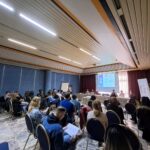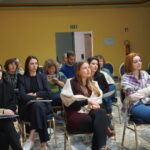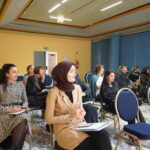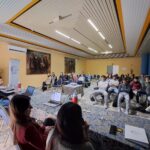Citizens’ Conference: COVID-19 effects on the democratic debate International in-situ event and world café sessions in Sassari, Italy

The COVID-19 pandemic was a major shock deeply impacting people, enterprises, public authorities, municipalities and regions. In many regards the pandemic has accelerated fragmentation between societal groups and between places. Many of the pandemic impacts highlight the risks of increasing inequalities.
EU democracy comprises several crucial elements, such as free and fair elections; an independent judiciary; representative institutions, an impartial administration; respect for fundamental rights and the rule of law; a well-functioning parliament with a strong opposition; free media; and the participatory engagement of citizens. Before the pandemic, Europe was rated the second-most democratic region in the world by the International Institute for Democracy and Electoral Assistance (IDEA), as 93% of countries were classified as democracies. But the quality of Europe’s democracy has been declining for the past ten years, mainly due to weaker checks on government, limited civic space, and the rise of populist and extremist parties. This situation appears to have worsened since the pandemic. Measures taken by national governments to contain the virus curtailed citizens’ fundamental democratic liberties as never before. The proportionality of undermining the freedoms of movement, assembly, and speech is a delicate one to achieve, and governments (may) have overstepped the constitutional limits of their powers.
The dramatic spread of the COVID-19 pandemic in Europe has led Member States to adopt a series of emergency measures in an effort to contain the virus as quickly and effectively as possible. A wide majority of EU governments have resorted to “emergency powers” to radically limit internal and international travels, carry out sanitary controls, close schools and universities, shops and public places, confine persons at home, hereby drastically limiting individual freedom of movement and assembly.
The ACT stronger Project bringing together citizens, teachers, students, ONgs for exhange ideas, experiences and conclusions focused on Covid-19 crisis effects on the democratic debate in Spain, Italy, Greece, Bulgaria, Cyprus, France, Alemania y Lithuania.
The event took place on 24 February 2023 in Sassari (Italy).
Conclusions
There is a wide consensus among ACT stronger European partners, that exceptional measures adopted in the fight against Covid-19 have to respect democracy, rule of law and fundamental rights.
Documents















